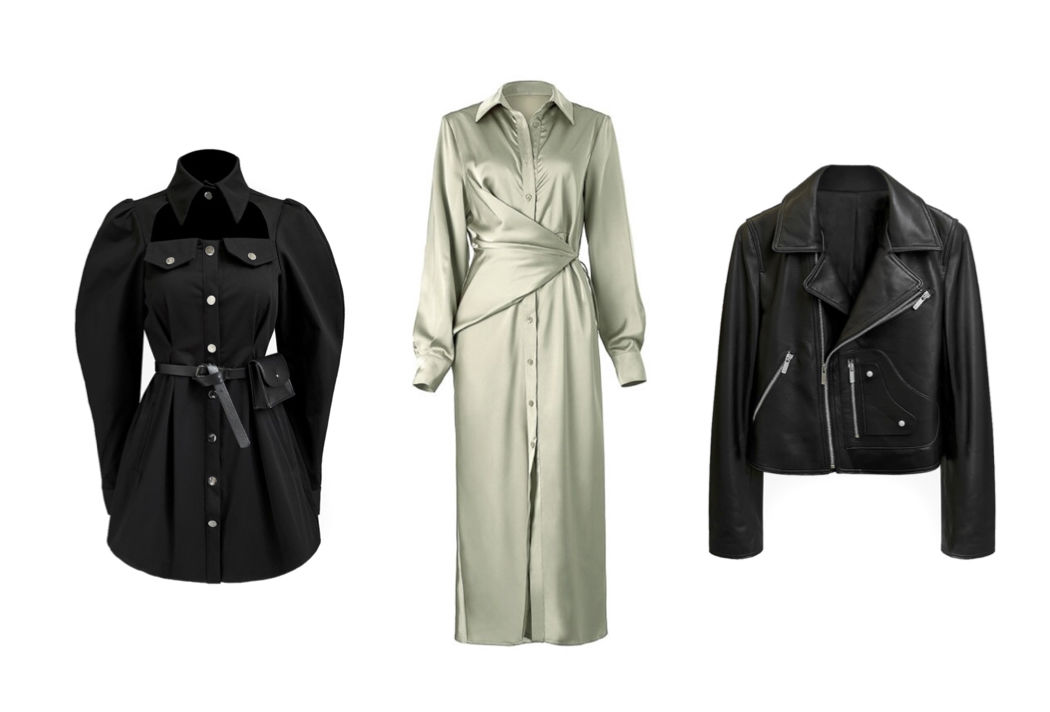Houston Sustainable Boutique Designer Wants Customers to Be Proud of Where They Shop

Be expecting more vegan leather pieces and darker colors for the winter, BIDA founder Bianca Dabney says. Houston’s weather is unpredictable, so having staple layering items is always a must for whatever the day brings.
Image: Courtesy of BIDA Boutique
Sure, minimalism and ethical shopping can sound too good to be true—buzzwords to attract your attention and money—but Houstonian Bianca Dabney is making it happen with her online shop, BIDA Boutique.
Dabney, born in Canada, says she was always interested in clothes. But in 2011, while attending the University of Calgary, she began modeling and her true love of fashion set in. She took time off after graduation to backpack through Southeast Asia, where she became inspired to create BIDA.
“On this trip I lived out of a backpack for two months,” Dabney says, “something I didn’t think would be possible, but early on appreciated the simplicity and ease of it.”
As she traveled, Dabney visited countries where mass amounts of clothing littered the streets. It was “shocking and saddening,” she says. This led her to want to incorporate minimalistic and sustainable values in her life. Shortly after her trip, she moved to Houston, and in August 2018, Dabney launched BIDA.
To ensure sustainability and ethical production, Dabney works with a smaller-batch manufacturer in Bali, Indonesia. She says workers are paid fair wages, and the manufacturer donates fabric waste to local vendors and use energy-efficient sewing machines.
And if that isn’t enough, Dabney uses sustainable fabrics, such as Tencel, Lyocell, organic cotton, and bamboo (Who doesn’t love a touch of bamboo?), in her designs. For future collections she plans to use only sustainable textiles, such as leather made from pineapples.
We chatted with Dabney about BIDA, her inspiration, clothing waste, and sustainability.
Tell us about BIDA.
BIDA is an extension of my passions, values, and life experiences. I always design and curate with the vision of reimagining simplicity, bringing pieces that are minimalistic yet interesting and have a touch of femininity.
What inspires your vision for your clothing line?
A lot of my inspiration comes from beautiful architecture, art, and travel. During my time at the University of Calgary, I took a contemporary art class and fell in love with the notion of negative space in architecture, which emphasizes the use of empty space to create something aesthetically pleasing. This is where a lot of my minimalistic style comes from. I rarely use patterns, too many complex details, or bright colors. Instead, I focus on neutral tones, simple styles, and purposeful detail.
Why is sustainability important to you?
Sustainability by definition is the ability to maintain a certain constant level. Our ever-growing society unfortunately has practices that are doing just the opposite of that, such as depleting our natural resources, polluting our environment, and placing harm on other humans and animals. To me, sustainability is important in order to create a world that not only can thrive with long-term viability and wellbeing, but that we can be proud of.
How do you plan to become a 100-percent sustainable company?
In order to achieve my goal of 100-percent sustainability, I plan on designing and small-batch producing my future collections, using my ethical and sustainable manufacturer and focusing on only using sustainable textiles. The innovation of sustainable textiles is growing rapidly, and I’m excited to try out new materials such as leather made from pineapples and other recycled textiles. Furthermore, I will continue to use sustainable and recycled office supplies, shipping supplies, labels, and hang tags.
Tell us a bit about your current Pre-Fall Collection.
My Pre-Fall ‘20 Collection is a made-to-order collection. Once a customer places the order on our site, our production team will make the piece within six to 14 days and then have it shipped to the customer. With our made-to-order model, our goal is to drastically reduce production and material waste by only producing on demand. When you produce a full collection, you run the risk of overproducing and having leftover inventory at the end of the season, further adding to the issue of clothing waste.




